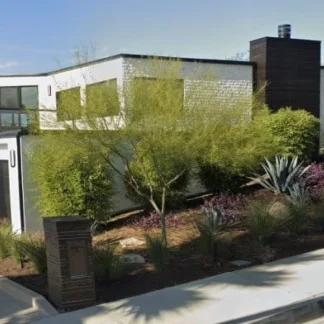Get Real Recovery
Get Real Recovery is an outpatient treatment that serves individuals who are str...
Oceanfront Villas Sober Living, located in Laguna Beach, California, offers transitional living services to adults. They offer luxurious amenities such as a pool and hiking trails. Services include support for justice-involved individuals, referrals to additional treatment services, and an alumni program.
Oceanfront Villas offers sober living for those who have finished a residential alcohol and drug rehab program or have been sober for at least two months. Services include referrals to outpatient care, relapse prevention, life skills training, education support, and resume and interview preparation. The program requires daily check-ins, involvement in a 12 Step or other recovery program, and drug testing.
To help clients maintain long-term sobriety, Oceanfront Villas Sober Living offers an alumni program that provides ongoing support and socialization opportunities. They may also offer opportunities to participate in group service projects and outings.
Sober living programs are not generally covered by insurance plans. However, the outpatient programs that clients are referred to may accept a variety of insurance plans, such as Humana, Cigna, Aetna, Blue Cross Blue Shield, and United Healthcare. Insurance plans vary, so contact your insurance provider to get information about coverage and out-of-network benefits.
Contact us for more information: (866) 497-5113

Connect with The Oceanfront Villas by calling their admissions team directly.
(866) 497-5113 Website Get DirectionsResearch clearly demonstrates that recovery is far more successful and sustainable when loved ones like family members participate in rehab and substance abuse treatment. Genetic factors may be at play when it comes to drug and alcohol addiction, as well as mental health issues. Family dynamics often play a critical role in addiction triggers, and if properly educated, family members can be a strong source of support when it comes to rehabilitation.
Group therapy is any therapeutic work that happens in a group (not one-on-one). There are a number of different group therapy modalities, including support groups, experiential therapy, psycho-education, and more. Group therapy involves treatment as well as processing interaction between group members.
In individual therapy, a patient meets one-on-one with a trained psychologist or counselor. Therapy is a pivotal part of effective substance abuse treatment, as it often covers root causes of addiction, including challenges faced by the patient in their social, family, and work/school life.
Life skills trainings involve all the skills a person must have in order to function successfully in the world. These include time management, career guidance, money management, and effective communication. Truly successful addiction recovery is based on the ability to not only live substance-free, but to thrive. Life skills teaches the practical necessities of functioning in society, which sets clients up for success in life, and therefore sobriety.
Group therapy is any therapeutic work that happens in a group (not one-on-one). There are a number of different group therapy modalities, including support groups, experiential therapy, psycho-education, and more. Group therapy involves treatment as well as processing interaction between group members.
In individual therapy, a patient meets one-on-one with a trained psychologist or counselor. Therapy is a pivotal part of effective substance abuse treatment, as it often covers root causes of addiction, including challenges faced by the patient in their social, family, and work/school life.
Life skills trainings involve all the skills a person must have in order to function successfully in the world. These include time management, career guidance, money management, and effective communication. Truly successful addiction recovery is based on the ability to not only live substance-free, but to thrive. Life skills teaches the practical necessities of functioning in society, which sets clients up for success in life, and therefore sobriety.
In individual therapy, a patient meets one-on-one with a trained psychologist or counselor. Therapy is a pivotal part of effective substance abuse treatment, as it often covers root causes of addiction, including challenges faced by the patient in their social, family, and work/school life.
Life skills trainings involve all the skills a person must have in order to function successfully in the world. These include time management, career guidance, money management, and effective communication. Truly successful addiction recovery is based on the ability to not only live substance-free, but to thrive. Life skills teaches the practical necessities of functioning in society, which sets clients up for success in life, and therefore sobriety.
Life skills trainings involve all the skills a person must have in order to function successfully in the world. These include time management, career guidance, money management, and effective communication. Truly successful addiction recovery is based on the ability to not only live substance-free, but to thrive. Life skills teaches the practical necessities of functioning in society, which sets clients up for success in life, and therefore sobriety.
Get Real Recovery is an outpatient treatment that serves individuals who are str...
Laguna Trails Recovery is a private rehab center located in Laguna Niguel, CA. L...
Gloriosa Treatment Center is a private rehab located in Mission Viejo, Californi...
Laguna Treatment Hospital is a drug and alcohol rehab in Aliso Viejo, California...